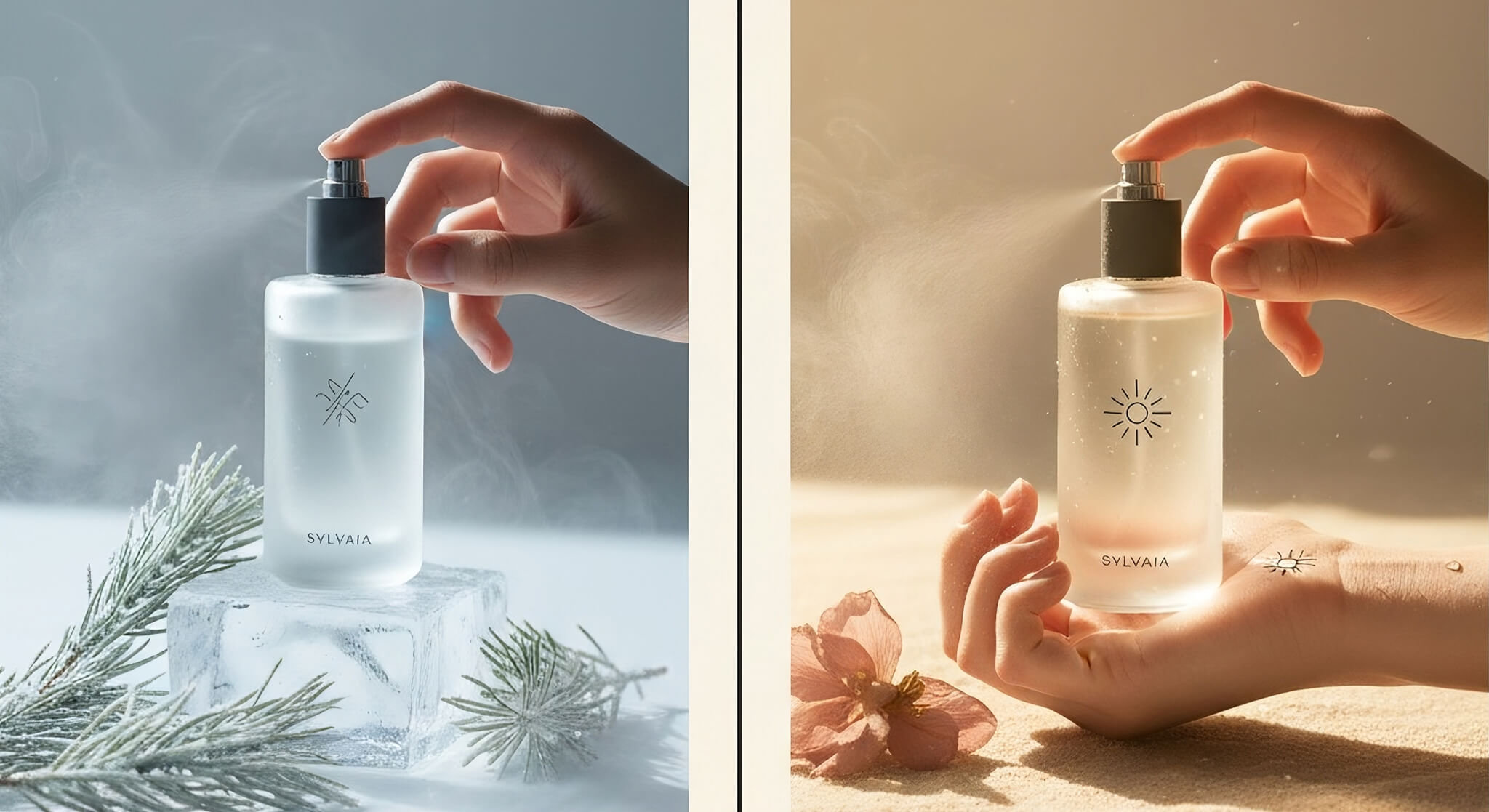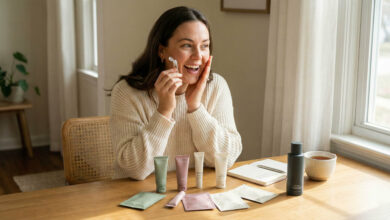Testing Perfume in Cold vs. Warm Weather: Does the Scent Change
Table of contents
The Scent That “Betrayed” You: A Familiar Fragrance Story
You fall in love with a new fragrance in the middle of winter—it’s a cozy, spicy amber that feels like being wrapped in a luxurious cashmere sweater. You adore it, so you invest in a full bottle. But when you spritz it on a hot, humid day in July, it suddenly becomes a different beast entirely: cloying, overwhelmingly sweet, and suffocatingly heavy. What happened? You’re not imagining it. The way you perceive the scent did change. But does the perfume itself transform in the bottle, or is there a bigger force at play? The answer lies in a fascinating mix of basic physics and your own skin chemistry, both of which determine how a fragrance will truly develop and project.
You’re not imagining it. The way you perceive the scent did change. But does the perfume itself transform in the bottle, or is there a bigger force at play?
The answer lies in a fascinating mix of basic physics and your own skin chemistry. We’re diving into the science of how temperature dramatically affects a fragrance, and how you can use this knowledge to avoid costly mistakes and build a perfect “scent wardrobe.
The Science: Why Heat Is an “Amplifier” for Perfume
The interaction between your perfume and the weather all comes down to one key scientific principle.
The Principle of Volatility
Perfume is composed of volatile molecules, which is a scientific way of saying they are designed to easily evaporate into the air so we can smell them. Heat is a form of energy. When you apply heat—from your own warm skin or from the ambient air—you give these molecules more energy. This causes them to evaporate faster and much more intensely.
How Warm Weather Turns Up the Volume
- Projection & Sillage: In the summer, the heat from your skin and the surrounding air makes a fragrance “bloom.” It projects much more strongly from your skin, creating a larger scent bubble and a longer scent trail (sillage). This is why a single spray of a perfume can feel far more powerful in August than it does in February.
- Which Notes Get Amplified: Heat tends to supercharge sweet and heady notes like vanilla, tuberose, honey, and rich fruits, which can quickly become overwhelming. At the same time, very light, zesty top notes like citrus may “burn off” and disappear much faster than they would in the cold.
How Cold Weather Turns Down the Volume
- Intimacy & Longevity: In the winter, there is less heat energy to fuel evaporation. The fragrance molecules evaporate much more slowly, and the scent stays significantly closer to your skin. It becomes a more personal, intimate experience for you and those who are very close to you.
- Which Notes Shine: The cold suppresses the “loudness” of big florals and overt sweetness. Instead, it allows the rich, heavy, and complex base notes—like woods, resins, spices, and amber—to develop slowly on the skin and shine in all their sophisticated glory.
The Smart Testing Strategy: A “Scent Wardrobe” Approach
Understanding this science allows you to become a much more intelligent fragrance shopper.
Test for the Season You’re In
When you’re at the perfume counter, always consider the current climate. That light floral you’re testing on a cold day might become a powerhouse in the summer heat. Conversely, the heavy vanilla you fall in love with in December might feel suffocating in August.
Curate Your Scent Wardrobe
Just as you wouldn’t wear a wool sweater to the beach, the most sophisticated approach is to have a small, curated wardrobe of scents for different seasons.
- Warm Weather Scents: Look for fragrances that are designed to thrive in heat: bright citruses (bergamot, neroli), light white florals (jasmine, peony), aquatic and marine notes, and crisp green scents.
- Cold Weather Scents: Look for fragrances that need the warmth of your skin to truly open up: rich ambers, deep vanillas, warm spices (cinnamon, clove), and complex woods (sandalwood, cedarwood).
The Ultimate Test to Avoid a Costly Mistake
If you are determined to find a single, year-round “signature scent,” the only way to do so without regret is to get a sample or travel size and live with it through a change of seasons. How it performs on a crisp autumn day versus a hot summer afternoon will tell you everything you need to know about its true character.
The Verdict: Your Perfume Is a Living Thing
So, does your perfume change with the weather? Absolutely. Think of it as a living, dynamic entity on your skin. Its character and performance are directly tied to the energy of the environment around it.
By understanding this simple science, you can transform from a confused consumer into a savvy curator. You can learn to anticipate how your fragrances will behave, build a beautiful and versatile collection, and ensure you always have the perfect scent for any given day, no matter the temperature.






